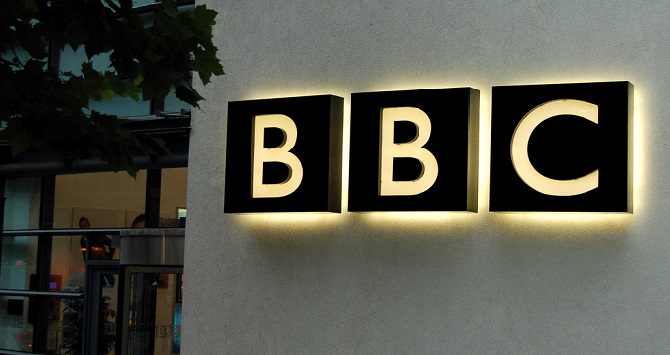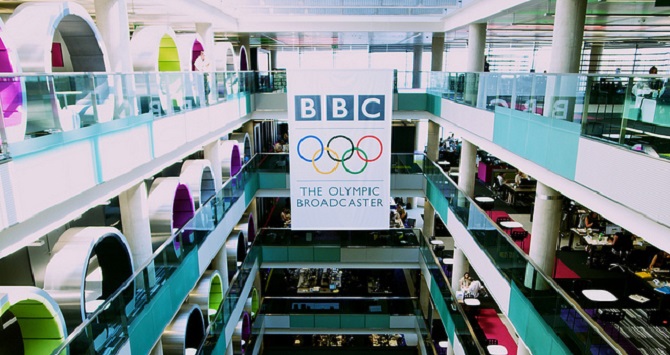 Responding to the Green Paper on the BBC Charter Review presented yesterday by the government, University of Westminster’s Jeanette Steemers points out that this announcement is an opportunity to make sure the BBC meets the needs of the UK’s children.
Responding to the Green Paper on the BBC Charter Review presented yesterday by the government, University of Westminster’s Jeanette Steemers points out that this announcement is an opportunity to make sure the BBC meets the needs of the UK’s children.
We are frequently told that children’s programming sits at the ‘heart of the BBC’s remit’ (see PACT submission to BBC Trust Public Value Test, February 2015), but without much further elaboration. And since the BBC Trust’s last bland review of children’s services in 2013 they have rarely been the focus of the debate about children’s provision and public service output. Today’s BBC Charter Review Public Consultation (Green Paper) offers an excellent opportunity both to remind ourselves about the value of publicly funded services for children and to ask if current provision is delivering what adults want and young people need.
Unsurprisingly, the Green Paper continues a long tradition of marginalizing children, by mentioning them just seven times in its 86 pages. The key sentence on children’s services comes on page 57 where the Government notes that:
“For example, children’s programming is an area in which the BBC has a near monopoly, as highlighted in the most recent Ofcom PSB Review, and a small amount of contestable funding could introduce greater diversity of providers and greater plurality in public services provision.”
Apart from the concern over any proposal for ‘contestable funding’ – shorthand for allocating licence fee income to non-BBC players – this statement is simply not true. The BBC now dominates the commissioning of UK-originated first-run children’s TV programming (88%), particularly of drama, news and factual programming (Ofcom, PSB Annual Report, 2014, p. 4), but it does not have a near monopoly on children’s content, only on UK-originated content. There are multiple suppliers out there in the marketplace, but barely any of them are commissioning UK-originated children’s programming, because it does not make sense to them economically.
BBC’s monopoly is on UK-originated children’s programmes only
In fact the BBC’s near monopoly on the commissioning of UK-originated children’s television content is largely a result of earlier government mistakes. In 2014 the BBC spent £84m on first run originated hours for children, with barely £3m spent by commercially funded public service broadcasters, ITV, Channel 4 and Five. When the 2003 Communications Act put children’s content under Tier 3 public service provision, part of the broader public service remit where Ofcom has no power to set quotas, it effectively spelt the death knell for competitive commissioning between the BBC and ITV. ITV, with the honourable exception of internationally attractive series like the remake of Thunderbirds, has virtually withdrawn from commissioning original children’s content since 2006, a withdrawal hastened by the decision to ban advertising for junk food and fizzy drinks around children’s programming in 2007.
The problem with a contestable fund is that it might mean less money overall if the Government decides to top slice BBC funding to pay for it, diminishing financial provision all round. Second a contestable fund might mean programming gets commissioned, but that still leaves the issue of how to fund its distribution in a more complex distribution environment. There are also issues around ensuring that contestable funding delivers value for money, as well as identifying who will commission and curate it.
Perhaps we should not worry. John Whittingdale recently positioned children’s content as part of the BBC’s remit alongside “high-quality drama, risky material, arts and culture, news and current affairs” religion and education, in part because he thought it might not be ‘viable on a commercial basis’. If children’s provision, as a classic case of market failure, is safe even within a potentially narrower definition of the BBC’s public service remit, then should we even be worrying at all? In Whittingdale’s world, UK originated children’s content seems guaranteed to survive in a world of multiple providers such as YouTube, Netflix, Disney, Nickelodeon and Cartoon Network, all of whom cater for a transnational children’s market.
I am not persuaded, but these are early days. The Green Paper has just been published and the framework for the discussion is not yet finalised, never mind the arguments themselves. It is vital, at this early stage, that we do not allow the discussion around children’s content to be marginalised or diverted into a debate about contestable funding or market failure rather than the broader principles of children’s programming.
What’s next for the BBC?
A contestable fund might appear very attractive to small independent producers who struggle to find funding for their ideas, and for whom the BBC seems arrogant, distant and slow, but the BBC is not there to service the independent production sector. The BBC is there to provide distinctive quality content for children, content that must extend far beyond television programmes if it is to connect with children and provide part of the broader rationale for the BBC’s continuing existence.
The new Charter offers us the opportunity to require the BBC to deliver programmes and services that will connect with children and imbue an understanding of public service if encapsulated in a broad range of quality content. Doing it will serve the needs of children, but it also serves the needs of the BBC – without that connection then today’s children will see no need to engage with the BBC as adults and may have abandoned it by the time the next Charter renewal rolls along in 2027.
At a crucial time for children’s television in the UK, the Children’s Media Foundation, the Voice of the Listener and Viewer, and the University of Westminster have joined forces to host an event on 3rd September to debate what children’s television might look like in a decade’s time. This is a public debate about the future of children’s services on the BBC as part of Charter Renewal and the future of children’s content on the commercial public service broadcasters – all in the context of new competition from VoD and YouTube. To register go to http://www.thechildrensmediafoundation.org/events/staring-into-the-abyss
This article gives the views of the author and does not represent the position of the LSE Media Policy Project blog, nor of the London School of Economics and Political Science.






1 Comments